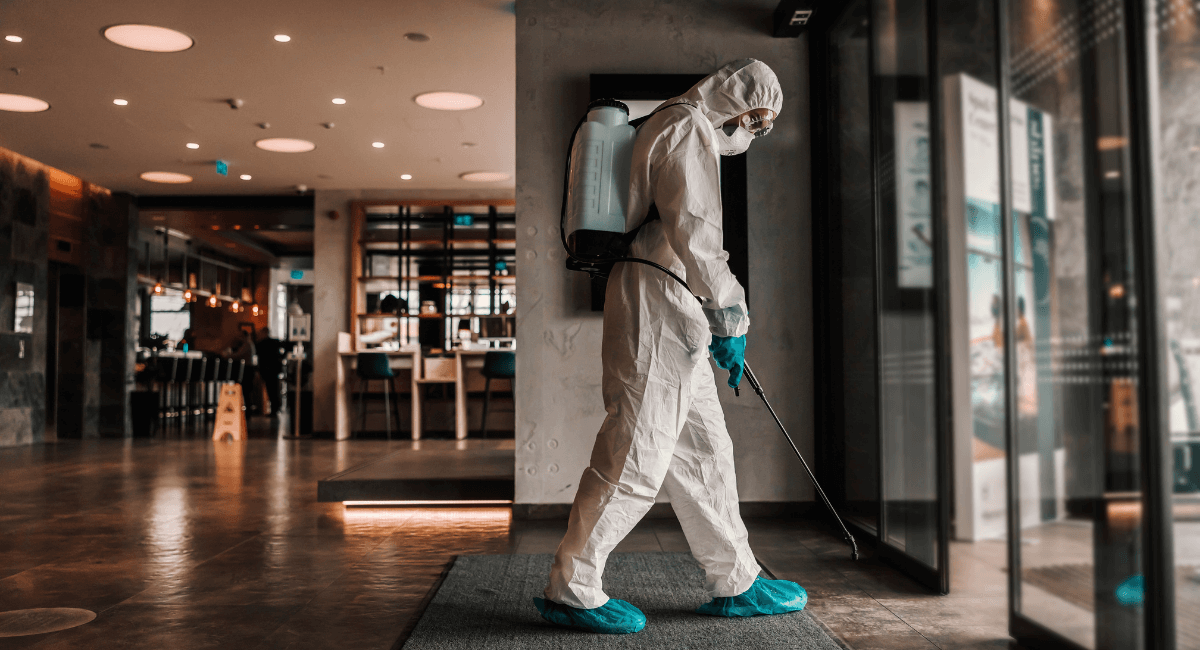
Are you guilty of hygiene theatre?
With many resorts experiencing the return of their owners and rental guests, a new and dangerous trend has been created – hygiene theatre.
This trend gives the illusion of improved safety through the indiscriminate spraying of chemicals and the excessive cleaning of surfaces. But, it may do little to reduce risk and could lead to essential touchpoints being missed.
We have all seen companies, local government and authorities championing their deep clean protocols:
- Restaurant chain Applebees appointed sanitation czars;
- Gym chain Planet Fitness boasted there wasn’t a surface or machine they wouldn’t clean;
- New York City closed the subway every night to blast everything with disinfectant sprays; and
- Supermarket chain Target advertises that staff are in from 6 am to mop and scrub.
Indeed, in previous newsletters, we’ve encouraged resorts to inform their guests about their new cleaning protocols – and reassure them all is safe with active cleaning.
However, Chartered Environmental Health Practitioner Dr Lisa Ackerley believes that it is time for all those involved in hospitality “to adopt an effective, sustainable, cost-effective and risk-based approach to hygiene interventions”.
Ackerley writes in Hospitalitynet that hygiene theatre is a worrying trend that gives guests a false sense of security, often “through a one-off so-called deep clean every night”. Or in the case of vacation ownership resorts at the end of each week-long stay.
These deep cleans are unlikely to reduce the transfer of pathogens such as the worrying RSV or flu, which are expected to peak this winter 2021-2022, and COVID. Instead, such misplaced reassurance may make guests feel safer but encourage them to let their guard down.
In 2020, the Centers for Disease Control and Prevention (CDC) updated the guidelines clarifying that while COVID spreads quickly among speakers and sneezers, touching a surface “isn’t thought to be the main way the virus spreads”.
This was confirmed again in April 2021: “Based on available epidemiological data and studies of environmental transmission factors,” the CDC concluded, “surface transmission is not the main route by which SARS-CoV-2 spreads, and the risk is considered low.”
In other words: COVID-19 is airborne: It spreads through tiny aerosolised droplets that linger in the air in unventilated spaces. So touching surfaces doesn’t carry many risks.
But of course, when it comes to hygiene and guest safety, resorts need to get it right. Surveys show that:
- 78 per cent of Americans are concerned about germs while away from home;
- 88 per cent expect businesses to implement protective measures;
- 57 per cent of vaccinated people are still worried about germs; and
- 72 per cent intend to follow the same cleaning behaviour adopted during the pandemic.
Dr Ackerley argues that protecting guests against illness-causing germs goes beyond hygiene theatre and must be based on “scientific, risk-based protocols”. These should be continuously assessed and based on key moments – the times and places where targeted hygiene should be applied.
Resorts looking for best practices in their hygiene protocols should consider:
- Some surfaces need to be disinfected as well as cleaned;
- Rather than creating hygiene theatre by creating unnecessary large-scale disinfection, resorts should implement targeted protocols to break the chain of infection;
- Protocols should focus on timely cleaning and disinfection of high-touch surfaces such as:
- Door handles
- Elevator buttons
- Reception desks
- Bannisters
- Escalator handles
- Encourage staff and guests to wash and sanitise at critical times; and
- Use EPA-approved (or alternative) products.
Derek Thompson writes in The Atlantic that scientists are concerned that “the excesses of hygiene theatre have negative consequences”. He adds that our obsession with contaminated surfaces distracts from more effective ways of combating COVID, such as handwashing, avoiding touching your face and wearing gloves in certain areas.
Thompson highlights how hygiene theatre can also take limited resources away from more important goals. For example, spending lavishly on power-scrubbing while considering staff layoffs is, according to Thompson, entirely unnecessary.
Moreover, hygiene theatre builds a false sense of security which can lead to more infections. Instead, the focus should be on ventilation in the resort’s gyms, bars and restaurants where guests can breathe in stale air rather than cleaning every surface with soap and bleach.
The CDC’s announcement should mean it’s time to make hygiene theatre and empty cleaning rituals a thing of the past. The focus should be on making hygiene a sustainable and effective solution to help protect both staff and guests. This should include mask-wearing, social distancing, ventilation and moving as much as possible outdoors. But, as Thompson surmises, until we all embrace the value of scientific discovery and the joy of learning new things, the show, and the soap, will go on.
Source:



